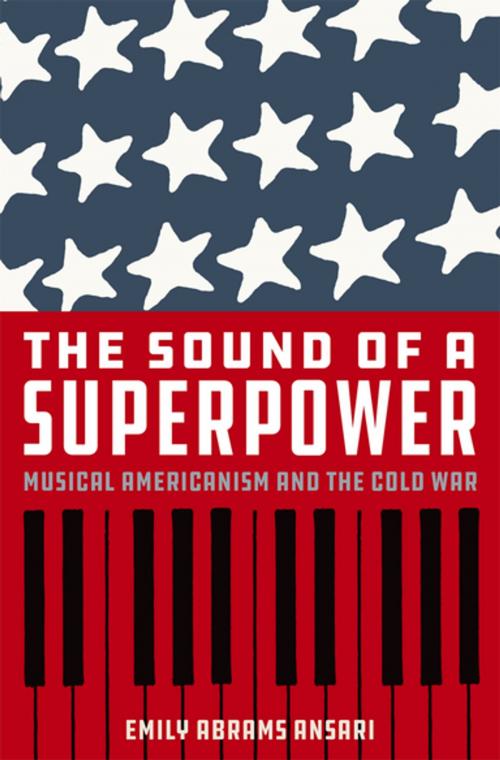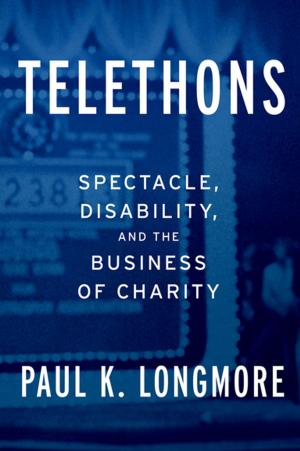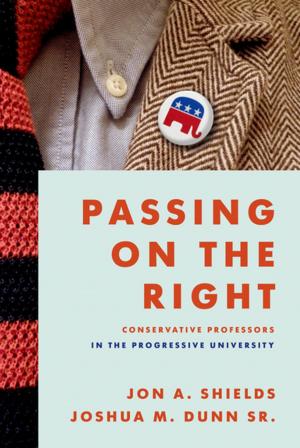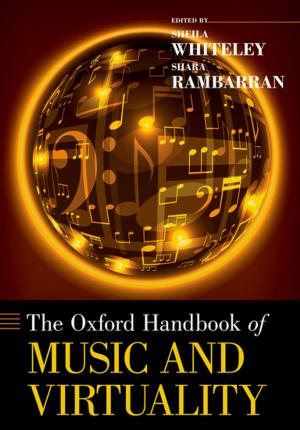The Sound of a Superpower
Musical Americanism and the Cold War
Nonfiction, Entertainment, Music, Music Styles, Classical & Opera, Classical, History, Americas, United States, 20th Century| Author: | Emily Abrams Ansari | ISBN: | 9780190649715 |
| Publisher: | Oxford University Press | Publication: | May 15, 2018 |
| Imprint: | Oxford University Press | Language: | English |
| Author: | Emily Abrams Ansari |
| ISBN: | 9780190649715 |
| Publisher: | Oxford University Press |
| Publication: | May 15, 2018 |
| Imprint: | Oxford University Press |
| Language: | English |
Classical composers seeking to create an American sound enjoyed unprecedented success during the 1930s and 1940s. Aaron Copland, Roy Harris, Howard Hanson and others brought national and international attention to American composers for the first time in history. In the years after World War II, however, something changed. The prestige of musical Americanism waned rapidly as anti-Communists made accusations against leading Americanist composers. Meanwhile a method of harmonic organization that some considered more Cold War-appropriate--serialism--began to rise in status. For many composers and historians, the Cold War had effectively "killed off" musical Americanism. In The Sound of a Superpower: Musical Americanism and the Cold War, Emily Abrams Ansari offers a fuller, more nuanced picture of the effect of the Cold War on Americanist composers. The ideological conflict brought both challenges and opportunities. Some Americanist composers struggled greatly in this new artistic and political environment. Those with leftist politics sensed a growing gap between the United States that their music imagined and the aggressive global superpower that their nation seemed to be becoming. But these same composers would find unique opportunities to ensure the survival of musical Americanism thanks to the federal government, which wanted to use American music as a Cold War propaganda tool. By serving as advisors to cultural diplomacy programs and touring as artistic ambassadors, the Americanists could bring their now government-backed music to new global audiences. Some with more right-wing politics, meanwhile, would actually flourish in the new ideological environment, by aligning their music with Cold War conceptions of American identity. The Americanists' efforts to safeguard the reputation of their style would have significant consequences. Ultimately, Ansari shows, they effected a rebranding of musical Americanism, with consequences that remain with us today.
Classical composers seeking to create an American sound enjoyed unprecedented success during the 1930s and 1940s. Aaron Copland, Roy Harris, Howard Hanson and others brought national and international attention to American composers for the first time in history. In the years after World War II, however, something changed. The prestige of musical Americanism waned rapidly as anti-Communists made accusations against leading Americanist composers. Meanwhile a method of harmonic organization that some considered more Cold War-appropriate--serialism--began to rise in status. For many composers and historians, the Cold War had effectively "killed off" musical Americanism. In The Sound of a Superpower: Musical Americanism and the Cold War, Emily Abrams Ansari offers a fuller, more nuanced picture of the effect of the Cold War on Americanist composers. The ideological conflict brought both challenges and opportunities. Some Americanist composers struggled greatly in this new artistic and political environment. Those with leftist politics sensed a growing gap between the United States that their music imagined and the aggressive global superpower that their nation seemed to be becoming. But these same composers would find unique opportunities to ensure the survival of musical Americanism thanks to the federal government, which wanted to use American music as a Cold War propaganda tool. By serving as advisors to cultural diplomacy programs and touring as artistic ambassadors, the Americanists could bring their now government-backed music to new global audiences. Some with more right-wing politics, meanwhile, would actually flourish in the new ideological environment, by aligning their music with Cold War conceptions of American identity. The Americanists' efforts to safeguard the reputation of their style would have significant consequences. Ultimately, Ansari shows, they effected a rebranding of musical Americanism, with consequences that remain with us today.















